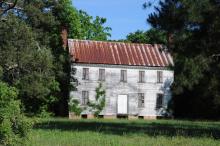
Fast, affordable Internet access for all.

Cooperatives have been doing a lot over the last few months to advance connectivity efforts around the country. That trend is continuing in Virginia, where Prince George Electric Cooperative (PGEC) and Northern Neck Electric Cooperative (NNEC) have announced partnerships with utility provider Dominion Energy to expand broadband access to thousands living and working in rural areas in the state.
The two projects represent over nearly $32 million in total investment, with money coming from the counties, the electric cooperatives, the investor-owned utility, and the state.
Innovative Partnerships

The first-of-its-kind agreement between PGEC and Dominion Energy was originally announced last February, and aimed at a combined 6,700 residents in Surry County. Dominion will serve as the middle-mile provider, and is already installing fiber as part of upgrades to its grid management. It will lease that fiber to RURALBAND, PGEC’s broadband subsidiary, which will then be responsible for building last-mile connections to homes and businesses and acting as the retail service provider. 2,200 of those receiving Fiber-to-the-Home (FTTH) connections will be existing customers of PGEC, with the other 4,500 customers of Dominion. In total, the project is projected to cost between $16 and $18 million.
“This partnership brings rural Surry County into the modern communications age, bridging a vital utility gap through reliable high-speed broadband services to residents and businesses, essential to Surry’s social and economic prosperity,” said Surry’s Acting County Administrator Melissa Rollins in a press release.

The second project, announced at the end of July, will take place in the Northern Neck region and include King George, Northumberland, Richmond, and Westmoreland counties. Currently, those living on the southern shore of the peninsula are worst off, though as a whole the region’s 50,000 residents are largely relegated to DSL connections. Northumberland, Richmond, and Westmoreland have pledged $345,000 to the effort, while King George will add $500,000 to the pot. Dominion Energy, Northern Neck Electric Cooperative, and partner All Points Broadband will provide an additional $9 million between them, and the remainder will come from the Virginia Telecommunications Initiative (VATI).
Legislative Changes and a Problematic Past
Two pieces of legislation passed since 2018 are what enabled PGEC and NNEC to partner with Dominion to make these projects happen. The passage of SB 966, the Grid Transformation and Security Act (2018) [pdf], included a host of regulatory changes which aimed to aid Dominion in modernizing its infrastructure and operations with emphases on energy efficiency and investment in renewables. Dominion, in lobbying for the effort, promised to spend $870 million in investment over ten years, with its first portfolio of improvements approved in May 2019.
It's worth noting that Dominion, a $62-billion company with almost 7 million utility customers, has a long and problematic history in the region. This includes pushing legislation to weaken oversight, taking in hundreds of millions of overearnings in the face of rate hikes, and pursuing environmentally racist projects. The 2018 bill allows the utility to invest excess profits beyond its allowed rate-of-return in grid modernization efforts and renewable energy projects. Advocates have criticized these investments as 'money grabs' intended to increase company earnings instead of improve its customers lives. The bill also reduces oversight frequency by state regulators.
HB 2691, the Virginia Electric Utility Regulation Act (2019) [pdf], is the other. Its broadband provisions include a three-year pilot program to extend service to unserved areas, and in pursuit of this allows investor-owned utilities to provide backhaul transport, capacity service, and interconnection points for electric cooperatives looking to expand service.
In addition, VATI has played a central role, providing grants to bring broadband to communities without it. Since 2017 the initiative has awarded almost $26 million to projects which have connected roughly 70,000 Virginians. VATI awarded the PGEC-Dominion project in Surry County $2.25 million, while the Northern Neck project received $4 million.
The state's Commonwealth Connect initiative highlights the connectivity challenges in the region. Almost a third of rural Virginians lack access to basic broadband (defined by the FCC as 25 megabits per second (Mbps) download and 3Mbps upload).
Part of the success of these partnerships is that everyone, from the utility, to the coop, to the county, and the state, are putting in a financial stake to ensure success.
The full details of the agreements are set to be filed with the State Corporation Commission in coming months.
For more on how electric cooperatives are bringing broadband to the state, listen to episode 358 of the Community Broadband Bits Podcast, where Christopher talks to President and CEO of Firefly Broadband Gary Wood and Member Services Manager Melissa Gay, below.
Image by Jerrye and Roy Klotz


